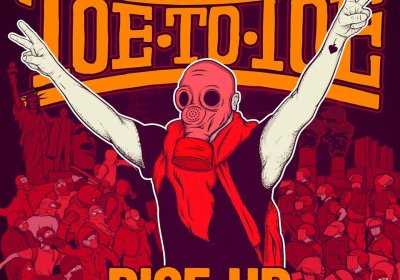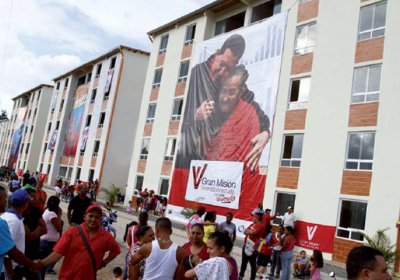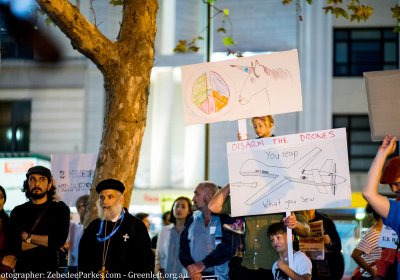1134
Today — ANZAC Day — is the climax of the orgy of nationalism and militarism we've been subjected to in recent times, ostensibly to remember the ordinary people who responded to the lies of the government by fighting and dying in an unjust war.
Of course progressive people have sympathy for the soldiers who died as well as the soldiers who didn't die but nevertheless witnessed or experienced terrible things.
“War aids capitalism, those who support capitalism support war, that is, the philosophy of death and destruction,” Boliva’s left-wing President Evo Morales said on April 18.
Morales warned that humanity was “at risk of disappearing in a nuclear holocaust,” as tensions mount worldwide after US military attacks in Syria and Afghanistan.
“Nuclear power in the United States and Western countries are getting us dangerously closer to a nuclear conflagration.”
Four years ago this month, a former bus driver with humble working-class origins became the president of Venezuela.
Promising to continue the revolutionary legacy of deceased former president Hugo Chavez, Nicolas Maduro pledged to advance the living standards of Venezuela’s poor and oppressed.
But since taking office in 2013, Maduro and the Bolivarian Revolution his government leads have faced non-stop attacks from Venezuela’s US-backed right-wing opposition, making advancements difficult.
One hundred years ago, on May 7, 1917, the following declaration appeared on the front page of the Bolshevik newspaper Pravda under the title, “Draft of a mandate for use in electing delegates to the Soviet of Worker and Soldier Deputies”.
This “mandate” marked the first appearance of the slogan “All power to the Soviets” in an official party statement.
The Soviets emerged out of the February Revolution that year, which succeeded in overthrowing the Tsar. The Soviets were based on elected delegates of workers, soldiers and peasants.
On April 25, 1945, the National Liberation Committee of Northern Italy (CLNAI), called for an insurrection against the Nazi-Fascist occupation of Italy.
Based in Milan, the Committee was led by (among others) Sandro Pertini, a key figure of the Italian Socialist Party (PSI) who later became Italian president in 1978.
Pertini made the announcement to the “Italian citizens and workers”, declaring: “Nazi-Fascist occupation must be ended and Italy has to be liberated, so the invaders have to surrender or perish.”
Sustainable Agriculture vs Corporate Greed: Small farmers, food security & big business
By Alan Broughton & Elena Garcia
Resistance Books
104pp, pb
$15.00
Prime Minister Theresa May has called a general election for June 8. The Tory leader is hoping that Labour has been sufficiently weakened by the attacks of the right on Labour’s left-wing leadership around Jeremy Corbyn that she will be rewarded with a further five years in office.
It is, of course, a complete coincidence that rumours had started to emerge that the Crown Prosecution Service were about to move against 30 individuals for electoral fraud in the last general election, threatening the Conservative government.
The US is looking to increase support for the Saudi Arabia-led war on Yemen, officials said on April 19 — a move some see as another signal that President Donald Trump is itching to take the US to a new war.
Hundreds of cities took part in a worldwide “March for Science” to coincide with Earth Day on Saturday. Grouping together local and international environmental issues, the demonstrations championed science, research and evidence in the face of political inaction toward the environment and climate change and increasing steps by taken by Donald Trump’s attacks on science and planet.
An emergency protest organised by Sydney Stop the War Coalition, held as the US Vice President Mike Pence arrived in Sydney on April 21, drew a range of networks concerned about new, possibly nuclear, wars.
The South Australian Racing Minister Leon Bignell has called on the state’s horseracing authority to ban jumps racing after five-year-old Wheeler Fortune was euthanised on April 15 after falling during the Somerled Hurdle race in Oakbank.
Bignell called on Thoroughbred Racing SA to act, labelling jumps racing “cruel and “barbaric”. But the controlling body said jumps racing was an “integral part” of the sport and would continue.
- Page 1
- Next page











